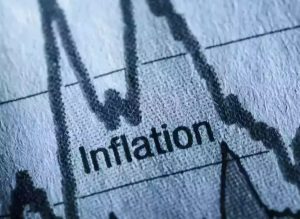The past 12 months have been stellar for investors who parked their money in Indian stocks. Though there has been some turbulence, the calendar year 2023 gave handsome monetary dividends to stock market investors…reports Asian Lite News
Firm GDP growth forecasts, inflation at manageable levels, political stability at the central government level and signs that the central bank is done with tightening its monetary policy have all contributed to painting a bright picture for the Indian stock market.
India pipped Hong Kong to become the fourth-highest equity market globally, Bloomberg reported. The combined value of shares listed on Indian exchanges reached USD 4.33 trillion as of Monday’s close, versus USD 4.29 trillion for Hong Kong, according to data compiled by Bloomberg. India’s stock market capitalization crossed USD 4 trillion for the first time on December 5, 2023, with about half of that reportedly coming in the past four years. The top three stock markets are those of US, China, and Japan.
Cumulatively, the past 12 months have been stellar for investors who parked their money in Indian stocks. Though there has been some turbulence, the calendar year 2023 gave handsome monetary dividends to stock market investors. In 2023 itself, Sensex and Nifty gained 17-18 per cent, on a cumulative basis. They gained a mere three to four per cent each in 2022. Hong Kong’s benchmark Hang Seng Index cumulatively declined 32-33 per cent over the past year, data showed.
Notably, foreign portfolio investors have again trained their sight towards India, becoming net buyers in the country’s stock market. In the process, it helped Indian benchmark stock indices taste their all-time highs recently.
According to the Bloomberg news report, India, which last year became the most populous country has positioned itself as an alternative to China, attracting fresh capital from global investors and companies alike, due to its stable political setup and a consumption-driven economy that remains among the fastest-growing of major nations.
As Indian stocks rallied, it coincided with a historic slump in Hong Kong, where some of China’s most influential and innovative firms are listed.
According to the news report, stringent anti-COVID-19 curbs, regulatory crackdowns on corporations, a property-sector crisis and geopolitical tensions with the West have all combined to erode China’s appeal as the world’s growth engine. New listings have dried up in Hong Kong, with the Asian financial hub losing its status as one of the world’s busiest venues for initial public offerings (IPOs). Here are some of the views of analysts and experts on India surpassing Hong Kong stock market in capitalisation terms: Sneha Poddar, AVP, retail research, Broking and Distribution, Motilal Oswal Financial Services:
India remains the fastest-growing country among the top 10 global economies.
The strong post-pandemic recovery and resilient performance amid global headwinds demonstrate the inherent strength of the economy. Strong growth, prudent policy reforms, government’s focus on infrastructure and capex, healthy corporate books, comfortable forex reserves, and lower commodity cost inflation could protect India from any external shocks and position it to outpace other countries in the coming decade.
Thus, we remain firm believers in the medium term India story and expect the overall trend to strengthen with multiple themes at play – financialization of savings, private capex revival, rising discretionary consumption, strengthening of real estate cycle, and the massive creation of digital and physical infrastructure. That being said, we believe the journey will not be linear and will be combined with regular bouts of volatility as valuations are full. Palka Arora Chopra, Director, Master Capital Services:
A rapidly expanding retail investor base, consistent inflows from foreign institutional investors (FII), robust corporate profitability, and bullish investor sentiments drove Indian equities to new highs. Investor confidence has increased due to the anticipated rate reduction by international central banks in 2024, which has further fuelled the surge in the Indian market.
The positive macroeconomic conditions, predictions of interest rate decreases, and optimistic attitude before the election, have helped the Indian equities markets see gains for eight years running and are expected to continue growing.
India has positioned itself as an alternative to China, attracting fresh capital from global investors and companies alike. The economic slowdown in China and the pressure on American investors to reduce their exposure to Chinese companies are causing the Hong Kong markets to decline. Sunil Nyati, Managing Director, Swastika Investmart:
A stark contrast has emerged between the Indian and Hong Kong markets in recent years. This can be attributed to several converging factors. Firstly, India’s economic resurgence has propelled it to the top of the global growth charts, while China and Hong Kong grapple with slowing momentum.
Political and policy stability, coupled with improved corporate governance practices, further bolster India’s appeal. Conversely, China and Hong Kong face investor anxieties due to policy uncertainties. Consequently, foreign institutional investors (FIIs) are increasingly shifting their focus towards India, seeking refuge from the turbulence in the Chinese and Hong Kong markets. V K Vijayakumar, Chief Investment Strategist, Geojit Financial Services:
A significant trend in global economic growth now is the underperformance of China and the outperformance of India. This is getting reflected in the stock market. Since the important Chinese stocks listed in Hong Kong have crashed, the Hang Seng index is near 19-year low. This trend is likely to continue since the prospects for the Chinese economy and stock market appear bleak for now.
However, if the Chinese economy stages a comeback the Chinese stocks will bounce back since their valuations are very low. Nirav Vakharia, a Delhi-based analyst: Economic reforms taken up over the past decade since 2014, production-linked incentives to put thrust on manufacturing sector, has helped Indian stock market.” The journey is long; this is just a phase. The US and Chinese markets are more open, and ours is a bit tightly controlled. It is not yet fully open as it should have been. I expect this will gradually happen in the coming 10-15 years, with reforms at macro levels.
Dhirendra Kumar, CEO of Value Research: India’s steady rise in the economy and it becoming an island of growth when other countries are struggling to grow or seeing a nominal rise is a positive. China’s relative decline over the past 3-4 years since the Covid has hurt Hong Kong, as several Chinese companies are listed in Hong Kong. The Hong Kong stock market has various Chinese companies listed on it, and we have seen that they have steadily declined and are going out of prominence. While the Indian market is gaining prominence, backed by foreign portfolio investors’ investments, domestic investors are also steadily trying to mark it up.
India now has huge potential…Once the purchasing power of Indians improves further, they will save more and invest more in the market. (ANI)
ALSO READ-UAE GDP Gets Dh197B Boost from MoIAT




